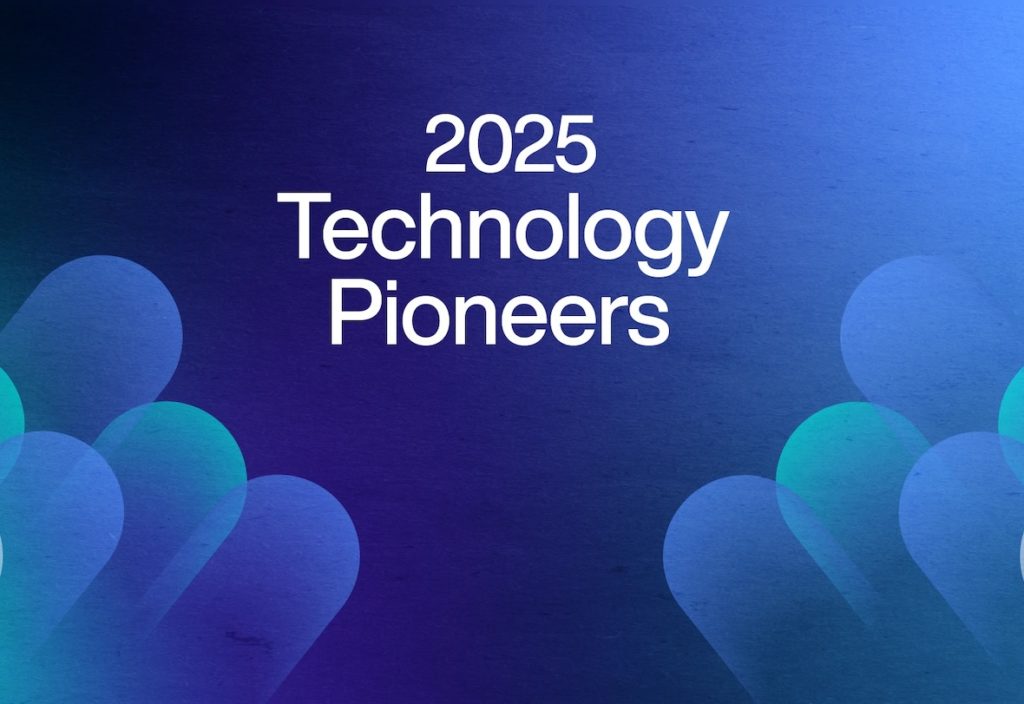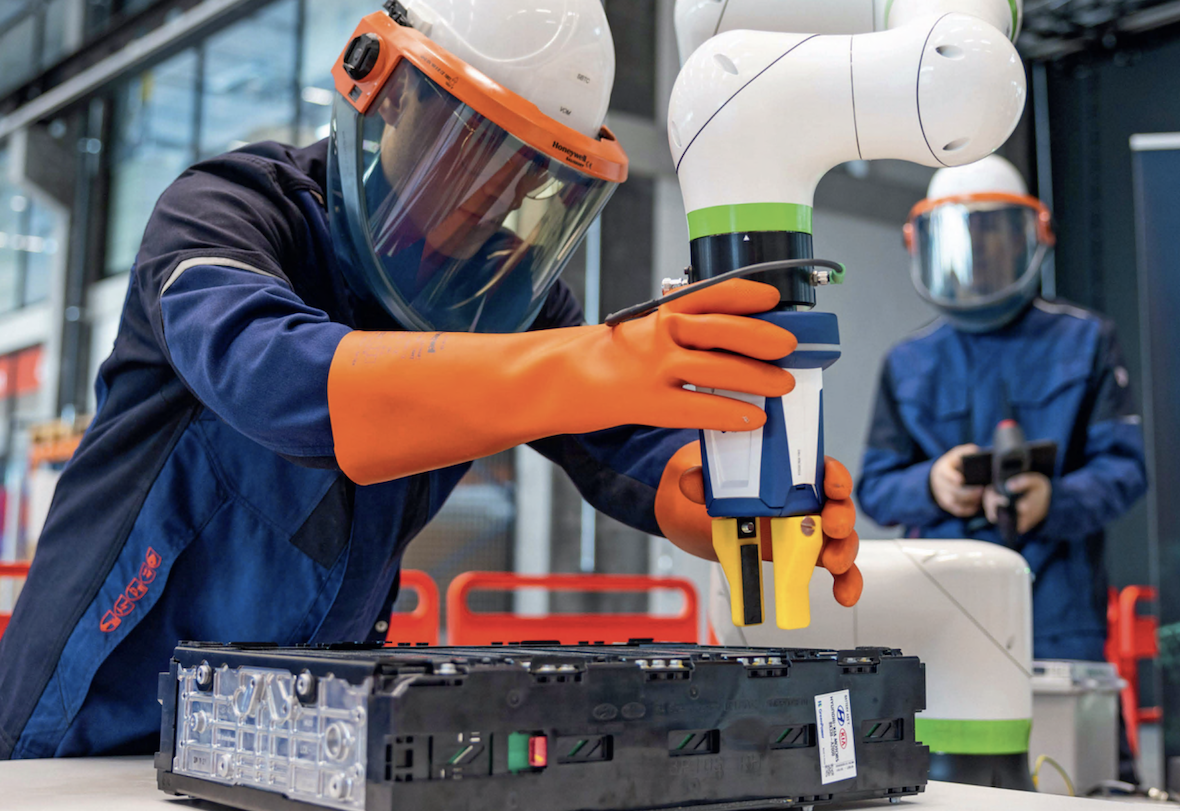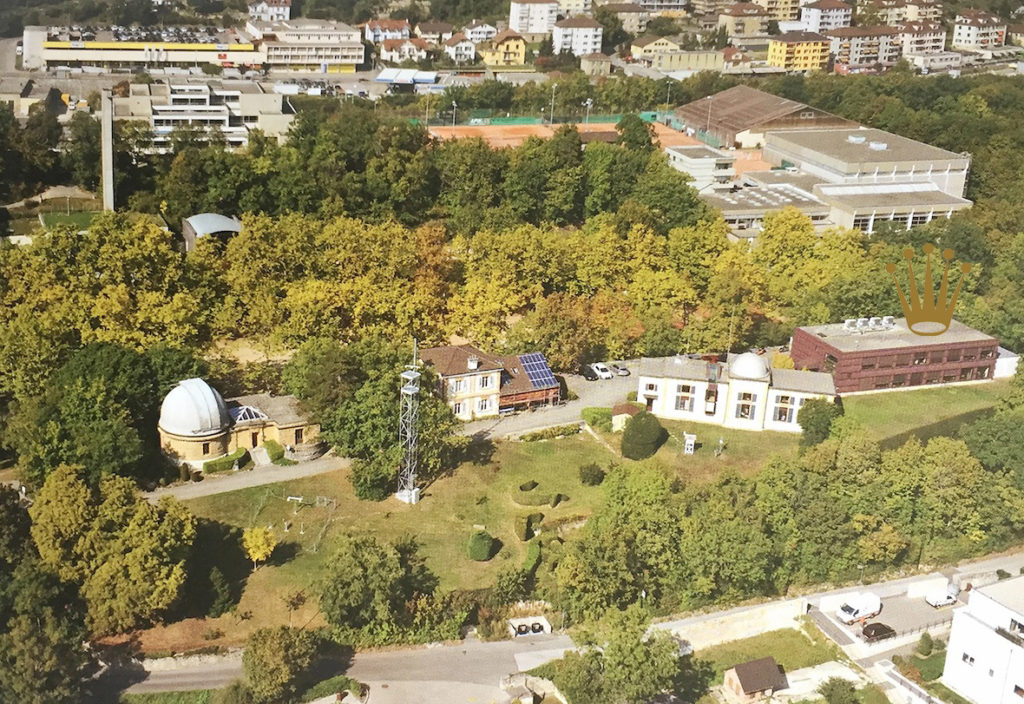
Swiss Battery Technology Center innovates with robotic battery recycling
6 May 2024
 Robotic disassembly will optimize and secure the recycling of lithium batteries. | © Swiss Battery Technology Center
Robotic disassembly will optimize and secure the recycling of lithium batteries. | © Swiss Battery Technology Center
The Swiss Battery Technology Center has launched the LAMBDA project to train robots for safe, efficient battery recycling using AI.
The Swiss Battery Technology Center (SBTC) of the Switzerland Innovation Park Biel/Bienne is addressing the critical issue of pollution and resource scarcity due to massive lithium-ion battery production. Collaborating with two start-ups, SBTC has launched the LAMBDA project, which utilizes advanced AI techniques to teach robots how to dismantle electric vehicle batteries.
“The goal of the LAMBDA research project is to develop a machine learning process for robots, starting with the creation of digital battery replicas as training grounds. These will provide high-quality simulations,” explained Dr. Özhan Özen, Data Scientist at SBTC, in an article originally published by the Chambre d’Économie Publique du Jura Bernois (CEP). This method not only speeds up recycling processes but also enhances the safety of engineers handling damaged battery units. “Through machine learning, robots will acquire the necessary skills to manipulate and disassemble various types of batteries, even damaged ones,” Dr. Özen added.
The project is internationally significant, supported by Innosuisse and Luxinnovation. To aid its development, SBTC is also working with two start-ups. Circu Li-ion, a Luxembourg-based company, specializes in battery upcycling and introduced an innovative system in 2021 for automating battery disassembly and cell diagnostics. AICA SA, the second start-up involved, is an expert in robotics and machine learning technologies and has a proven track record in project management and commercialization.
In an interview with Christian Ochsenbein, Head of the Swiss Battery Technology Center, he elaborated on the uniqueness of LAMBDA: “The global volume of used batteries is expected to increase twelvefold over the next decade. The solutions being developed are unique because they aim to recycle these large quantities using minimal energy and achieving as high a material recovery rate as possible.”
Regarding commercial prospects, Ochsenbein is optimistic: “Our goal is to develop the first marketable solutions for automatic disassembly. The complexity lies in scaling up automation. Once we have a pilot plant operational, we can prove its effectiveness and enter the electromobility battery market.”
He anticipates that within two years, the first commercial solutions will be ready, noting that the battery market’s dynamic nature will necessitate ongoing adjustments. “The theme of automatic disassembly will likely occupy us for the next decade,” Ochsenbein concluded.

